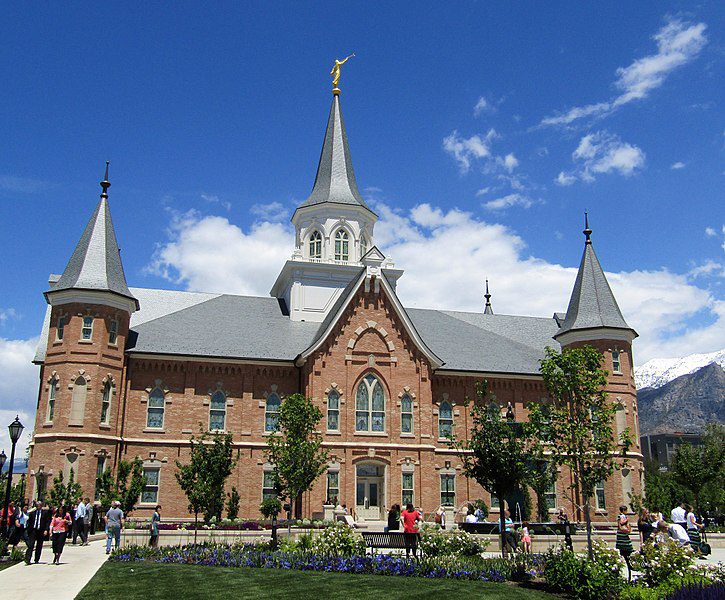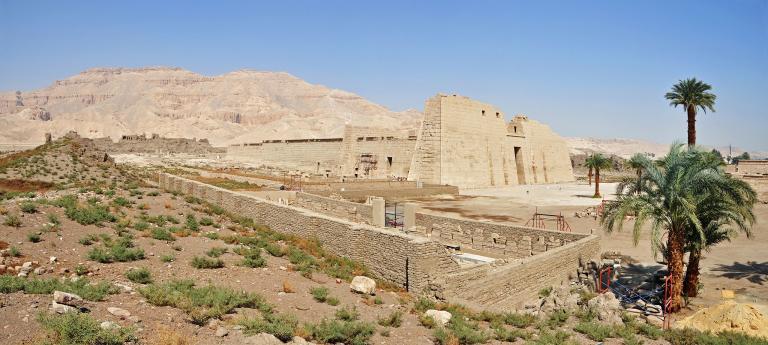
I think that Saturday’s Temple on Mount Zion conference, jointly sponsored by the BYU Department of Asian and Near Eastern Languages, the BYU College of Humanities, and the Interpreter Foundation, was a considerable success. It was well attended and the presentations were very good. I’m grateful to all who were involved.
For the final afternoon session, Neal Rappleye took over for Steve Densley, who had to leave in order to meet a Saturday evening stake conference commitment, in handling the lights and running the microphone around for those in the audience who wanted to ask questions or make comments. Thanks to him for that.
After a fifteen-minute break, the last session of the afternoon began with a presentation from Dr. Avram Shannon, who teaches in BYU’s Department of Ancient Scripture and who specializes in rabbinic Judaism, ancient Mediterranean religions, Jewish studies, and ancient biblical interpretation. His very energetic remarks were entitled “Consecration and Sacrilege in Early Rabbinic Judaism,” and I think that the audience really appreciated what he had to say. I certainly did, but I won’t try to summarize them here. Watch the (eventual) videotape! Read the (eventual) book!

(Wikimedia CC public domain photo by Marc Ryckaert)
John Gee, an Egyptologist who earned his master’s degree from the University of California at Berkeley and his doctorate from Yale University, made remarks under the title of “Put Off Thy Shoes from Off Thy Feet” that concentrated mostly on artwork in the New Kingdom mortuary temple of Ramesses III at Medinet Habu, located on the west bank of the Nile River opposite Luxor. Surveying 734 scenes portraying the pharaoh, he noted striking patterns regarding when the pharaoh was depicted as shod with sandals and when he was shown barefoot. On the whole, they seem to correspond with whether or not he was engaged in sacral activities in the most holy parts of the temple, and they suggest a context for the story of Egyptian-born Moses (“Prince of Egypt”) and the burning bush. “Draw not nigh hither: put off thy shoes from off thy feet, for the place whereon thou standest is holy ground” (Exodus 3:5).
The final speaker of the day was Matt Roper, whose chosen title was “Clothed with Glory: Sacred Vestments and the Restoration.” He shared with the audience a number of fascinating accounts of people who experienced visions, prior to the revelation of the temple ordinances in Nauvoo, in which they saw heavenly beings clothed in temple robes and related garments. I doubt that very many in the audience, if any, were aware of these intriguing reports.
Again, it was a really fine symposium. Kudos to Stephen Ricks, who organized it.
***
Saturday evening, Elder Jeffrey R. Holland delivered the 2018 Neal A. Maxwell Lecture, sponsored by the Neal A. Maxwell Institute for Religious Scholarship at BYU. His subject was “The Maxwell Legacy in the 21st Century.”
I did not attend the speech, partly because my wife and I had tickets for a performance of Wait Until Dark at the Hale Centre Theatre up in Sandy City. We went up with friends, had dinner near the theater, and very much enjoyed the play. (It has been a great week of drama for us. We had wanted to see Sweeney Todd: The Demon Barber of Fleet Street at the Pioneer Theater in Salt Lake City on Friday night, but, alas, we weren’t able to fit it in. Still, in addition to Wait Until Dark, we managed to see a production of Agatha Christie’s The Mousetrap at BYU and an excellent production of Cole Porter’s and P. G. Wodehouse’s Anything Goes at the Hale Center Theater in Orem.)
I’m really hoping, though, that the text of Elder Holland’s remarks will be published and/or that his speech was filmed and that a video of it will be posted. I’m assuming that the Maxwell Institute will see to it that this is done. If not, perhaps BYU or the Church will take care of it. I always value what Elder Holland has to say, and Elder Maxwell and his legacy matter very much to me.











